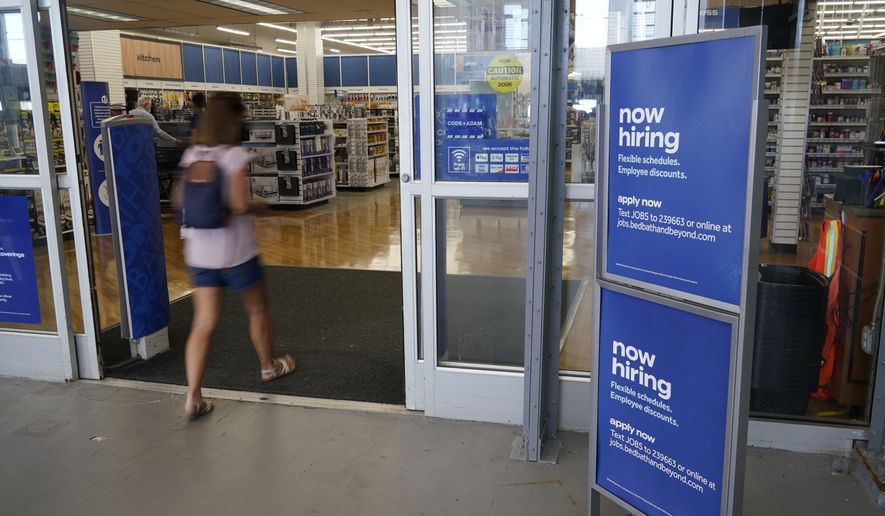The White House said Monday it does not believe generous unemployment insurance is keeping people out of the workforce and that factors such as a lack of child care, a desire for better wages and lingering fears of the virus are bigger factors.
“We don’t see much evidence that the extra unemployment insurance is a major driver in people not rejoining the workforce,” said White House press secretary Jen Psaki.
The U.S. added only 266,000 jobs in April, the government said Friday, far below the 1 million that economists expected amid the vaccine push and gradual recovery from the pandemic.
“We’ve always believed there would be ups and downs in our jobs reports. That is historically how it has gone,” Ms. Psaki said.
Yet the disappointing report sparked debate about whether it was a blip or signs of a deeper problem, as the U.S. tries to regain millions of jobs lost during the pandemic.
Republicans and others say generous unemployment benefits make staying home a better deal for some potential workers.
Sen. Ben Sasse of Nebraska wants to convert the benefit into a bonus for those who return to work, while others have proposed rolling the money into infrastructure investments.
The White House insisted that unemployment insurance, which was boosted during the height of the pandemic, wasn’t the main factor in the jobs report.
She said when figures for April were compiled, only 18% of 18- to 64-year-olds were fully vaccinated compared to 34% as of May 9. Virus cases were also 40% higher at the time of the data collection, so workers might be more confident at this point or moving forward.
Ms. Psaki said companies can entice workers by offering better pay and making sure their workforces are vaccinated.
• Tom Howell Jr. can be reached at thowell@washingtontimes.com.




Please read our comment policy before commenting.